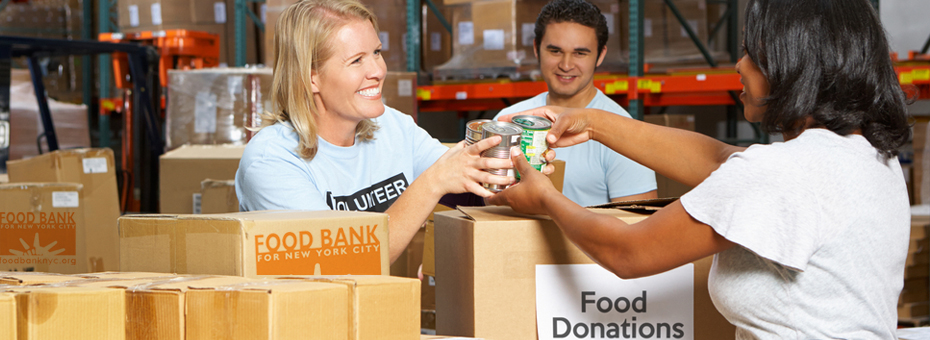Hear the words “food bank” and most people think of a small outfit with fairly simple operations. How complex can operations be, right? Wrong. Take a look at Food Bank For New York City, a nonprofit serving 1.5 million New Yorkers annually.
President and CEO Margarette Purvis says most people think food banks are like church pantries, and have a lot of trouble just conceiving of the size and scale of their operations. Food Bank (as it’s called for short) functions as a network of more than 1,000 community-based member programs and schools city-wide and at given time, has 15-31 tractor trailers out on the street. That’s quite a customer need to attend to. And the organization’s focus isn’t just food: it’s food access/distribution, income support, nutrition, advocacy, and research. Beyond being an anti-hunger organization, “We are an anti-poverty organization that uses innovation as a tool to solve social problems,” Purvis says.
This is why in 2011 Purvis and her leadership team partnered with Toyota (TSSC – The Toyota Production System Support Center) to rethink and improve their operations, top to bottom. The partnership began when Food Bank started applying kaizen at Food Bank’s Community Kitchen. It developed further over time, particularly in response to the near crippling repercussions of Hurricane Sandy. (Watch a video of TSSC’s work with one of Food Bank’s member organizations, Metro World Child).
For Purvis, the partnership is unique because Toyota is donating not only a financial contribution, but the thing they do best: their knowledge and skill of process design and truly effective (not just efficient) production processes/operations. “Most people think Lean is about efficiency,” she says, “but it’s so much more than that. It’s about most effectively delivering to your customer/client whatever it is you do.”
How could a company that makes cars have anything to teach an anti-hunger, poverty relief organization? It turns out good operations are good operations, no matter the product or service. When you teach team members to solve problems and think creatively using tried and true methods that are known to make the best use of resources and people’s capabilities and talents—the benefits are huge, no matter what the work is.
Purvis isn’t just grateful for operational improvements her team members have made with the help of TSSC coaches; the new focus on lean thinking and practice has given staff, donors, and volunteers something to rally around and get excited about. It’s created a new level of problem solving and creativity among team members.
The partnership has also drawn attention to Food Bank from donors who may not be interested in giving otherwise, she says. “Most people believe charities have great heart, but not great brains. Nonprofit organizations like ours aren’t typically thought of as strategic thinkers, but nothing could be farther from the truth.” For donors who are unfamiliar with the scale and strategy of Food Bank’s work, the partnership with TSSC sends this strategy message loud and clear.
Has it all been easy? No. Rethinking one’s own processes and developing new habits is never easy. Food Bank and TSSC have learned hard lessons along the way, both about how to translate lean ideas for a very different industry and how to create genuine buy-in from team members who know the work through and through. But it’s all been more than worth it, Purvis says. The partnership has been an incredible learning experience for everyone involved and it’s just getting started.
Interested in learning more about this unique partnership? Watch Margarette Purvis’s plenary presentation at this year’s Lean Transformation Summit in Orlando via livestream. You’ll learn how Food Bank team members have enthusiastically made the concept of “kaizen” their own; translated lean principles, tools, and ideas for their sector; and created a “kaizen lab” at its Food Distribution Center in the Bronx to serve as a model line for the rest of the organization.
Related articles:
- In Lieu of Money, Toyota Donates Efficiency to New York Charity (New York Times, July 2013)
- Feeding New Yorkers With Maximum Efficiency (Wall Street Journal, December 2013)





